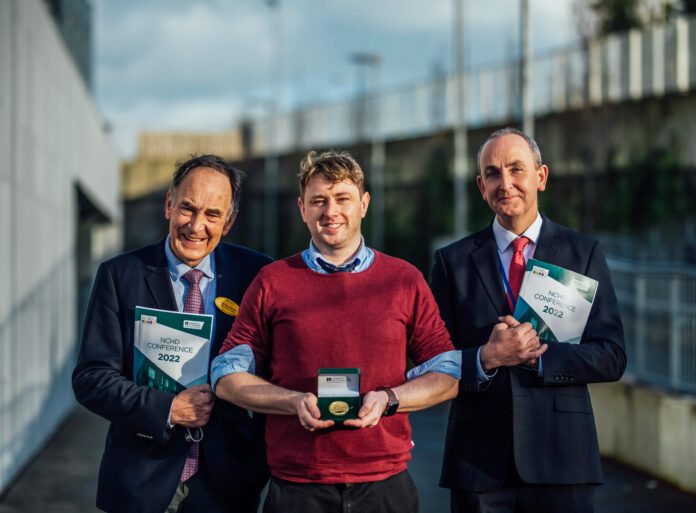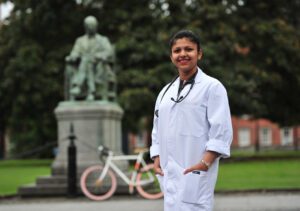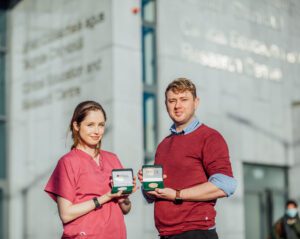
ROBOTIC assisted surgery is improving patient outcomes for complex gynaecological procedures at University Hospital Limerick.
That’s according to research conducted by Dr Prerna Kamath who took home a silver medal at the annual NCHD (non-consultant hospital doctor) Conference at University Hospital Limerick.
Patients are now benefiting from reduced length of stay, quicker recovery times and better outcomes compared to open and laparoscopic surgery.
Dr Kamath’s study examined 50 cases at UHL between January 2019 and September 2021. The rate of complications within 30 days was just four per cent of cases and there were no cases of post-operative infection. The average operation time was 2 hours and 34 minutes while the average length of stay was one day, all patients having been admitted on the day of surgery.

“Robotic assisted surgery in UHL certainly seems to be the future of surgery for some of our more complex patients,” Dr Kamath said.
“For my research, I looked at the intraoperative and postoperative outcomes post robotic assisted benign gynaecological surgery, and it had very favourable outcomes for patients with a high body mass index and large fibroids. The results are in line with international standards and show better postoperative outcomes compared to open surgery”.
Robotic procedures can also help preserve fertility. In the case of a myomectomy, involving the removal of uterine fibroids relatively common in Caucasian women, an open procedure comes not only with the usual risks and increased length of stay but also an increased risk of hysterectomy.
The annual conference aims to help NCHDs enhance their research experience, while providing them with an opportunity to present research, audit and quality improvement projects from this training year.
More than 150 posters were submitted in the cross-faculty conference at the Clinical Education and Research Centre (CERC) incorporating Medicine, Surgery, Paediatrics, Anaesthetics, Obstetrics and Gynaecology, Radiology, Orthopaedics and Emergency Medicine, with prizes for best poster presentation in each department.
Top prize at the conference went to Dr Niall Dalton for his research on the barriers to physical activity and quality of life indicators in children with type 1 diabetes.

According to his research, almost nine in 10 children attending the paediatric diabetes clinic in UHL were achieving 60 minutes of physical activity per day despite the barriers presented by the condition. However, some of the participants acknowledged that the risk of hypoglycaemia was a major barrier to engaging in physical activity.
This finding reflects the metabolic challenges associated with activity engagement for children and young people with Type 1 diabetes.
“Type 1 diabetes is one of the most prevalent chronic health conditions in youth with a rising incidence,” Dr Dalton said.
“Management regimes are often complex and demanding, leading to significant stress for children and their families and potentially decreasing the quality of life for all involved. Type, duration and intensity of physical activity will influence metabolic response in Type 1 diabetes, and careful planning is required to prevent severe episodes of hyperglycaemia or hypoglycaemia,” he added.
“One of the goals of paediatricians is to minimise the impact that disease and chronic conditions have on our patients and to afford them with the same experiences and opportunities as their peers. We therefore sought to investigate potential barriers to physical activity, as physical activity has been shown to improve diabetes management and overall improve the quality of life of children with the condition”.
The inaugural NCHD conference at UL Hospitals took place last year during the cyber-attack on HSE IT systems and the Covid pandemic. Despite those challenges, two of the submissions received recognition at the NCHD National Project Competition last June.
Dr Therese Martin took home the top prize for her project on UL Hospitals Group NCHD App and Dr Berbie Byrne was also acknowledged for her work on the inaugural NCHD conference at UL Hospitals Group.

